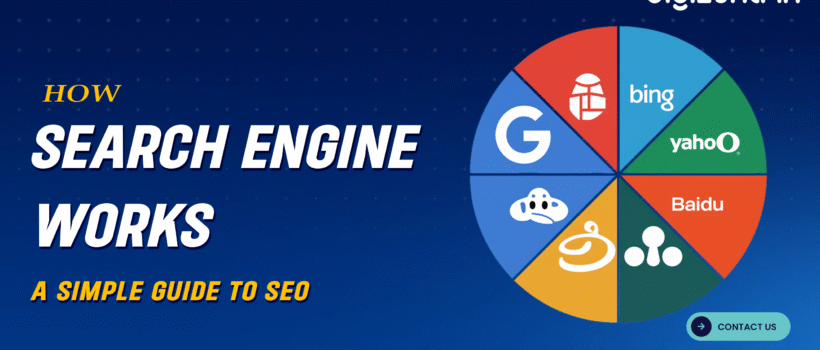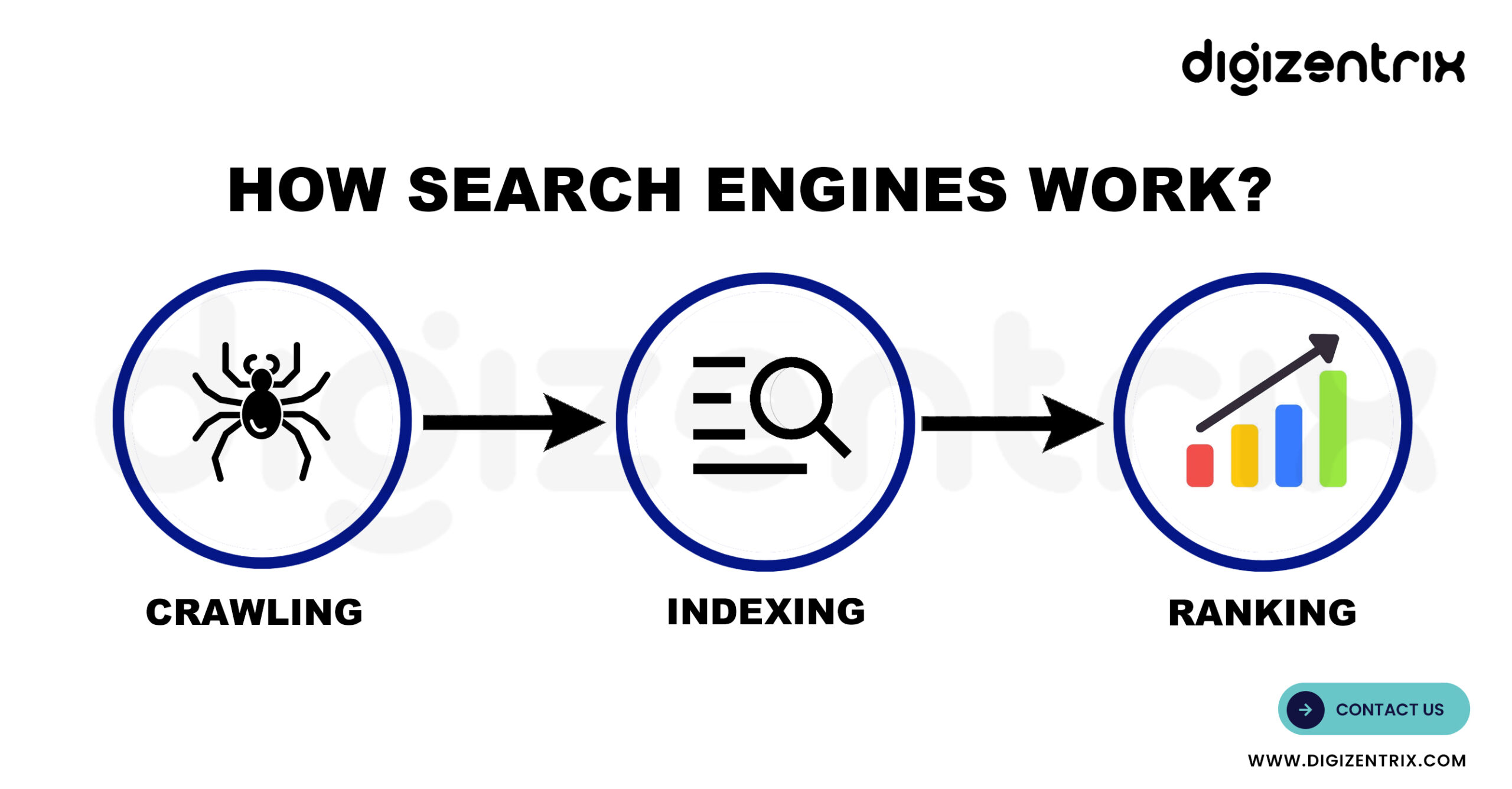
How Search engines Work: A Real-Life Perspective

Imagine you’re in a big library with endless rows of books. You’re looking for a book about baking sourdough bread, but there’s no librarian around. Instead, there’s a magical helper who knows exactly where every book is and can find the perfect one for you in seconds. That magical helper? It’s like a search engine for the internet.
Search engines like Google, Bing, and Yahoo act as the librarians of the internet. They help you find the information you need from millions of websites. Let’s break down how they work in simple steps.
How Search engines Work

Crawling: Exploring the Internet
The first step is crawling. Think of it as the librarian walking through the library and checking all the books to see what’s inside. Search engines send out special programs called “crawlers” or “spiders” to explore the internet. These crawlers move from one website to another by following links, like walking from one shelf to the next.
For example, let’s say Maya creates a new website with recipes. When another website links to Maya’s, the search engine’s crawler finds her site and starts reading its content. The crawler collects information like the words on her pages, images, and links.
Indexing: Organizing the Information
After collecting the information, search engines organize it. This process is called indexing. It’s like sorting the books in the library by topics, authors, or genres. For search engines, this means storing the information in a giant database.
Imagine Maya’s recipe site has a page about baking sourdough bread. The search engine stores that page under categories like “baking,” “bread recipes,” and “sourdough tips.” So when someone searches for “easy sourdough recipes,” the search engine knows where to look.
Ranking: Choosing the Best Results
Now comes the important part: ranking. When you type a question into a search engine, it doesn’t just show random results. It uses rules, called algorithms, to decide which pages are the most useful and relevant to your search.
Imagine asking the librarian for a book about baking sourdough bread. They don’t give you every book about bread. Instead, they find the one with clear instructions, good reviews, and recent information. Search engines do the same thing. They look at things like how well the page is written, how fast it loads, and how many other websites link to it.
A Real-Life Example: Maya’s Recipe Success
Let’s go back to Maya. After she creates her recipe website, she learns about search engine optimization (SEO). She makes sure her pages load quickly, uses keywords like “easy sourdough recipes,” and gets links from popular food blogs. Because of this, when someone searches for “best sourdough bread recipe,” her page shows up at the top. This brings more people to her site and helps her grow her audience.
Showing Results: Instant Answers
Finally, search engines show you the results. This happens in less than a second. The search engine’s results page (SERP) shows a mix of links, images, videos, and sometimes direct answers. For example, if you search “how to bake sourdough bread,” you might see step-by-step instructions at the top of the page without even clicking a link.
Why This Matters
Understanding how search engines work helps you use them better. Whether you’re a student working on a project, a business owner like Maya, or just curious about something, search engines are powerful tools to find the information you need.
So, the next time you search for something, think of the magical librarian working behind the scenes to bring you the best answers. It may seem simple, but it’s a complex process designed to make your life easier.
A Story to End With
Months after launching her recipe website, Maya received an email from a woman named Sarah. Sarah explained how Maya’s sourdough recipe had changed her life. Sarah had always struggled to bake bread, but Maya’s clear instructions and tips made it easy. Sarah even started a small baking business, selling sourdough bread at local markets. Maya felt proud knowing her website wasn’t just ranked high by search engines, but it also made a real difference in someone’s life.
So, the next time you search for something online, think about the magic behind it. It’s not just about technology; it’s about connecting people, solving problems, and sometimes, changing lives.


